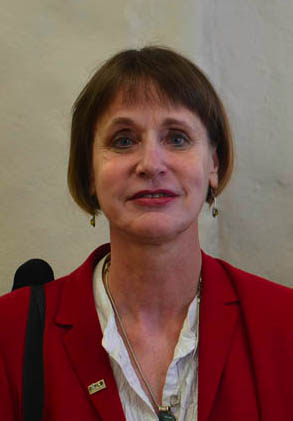Internet Governance – A Year of Sharp Confrontations
01/02/2013
By Ginger Paque

Internet Governance (IG) ended 2012 with its focus on the World Conference on International Telecommunications organized by the International Telecommunication Union (ITU) and held in Dubai in the month of December. Discussions became dynamic, even aggressive, due a new polarization on Internet management and the topics that were to be discussed. Many are now talking about a new cold war[1] in which one side is firmly anchored in the sovereignty of the states, particularly devoted to protecting control, security and cyber security issues, sometimes even above human rights, and where there is another point of view that supports a broader governance with input from multiple stakeholders including governments, civil society, the technical community, academia and the private sector, and which considers the protection of human rights a priority.
Yet the Internet is no stranger to strong opinions. We’ve been discussing ICANN vs. the ITU for years. The discussions on copyright vs. open access/open source continue. Net neutrality continues to give rise to sharp confrontations. In this environment, energy levels are high and this is not indicative of a new ice age.[2] On the contrary, the number of global forums in existence evidences of the dynamism Internet governance is gaining on diplomatic agendas.
In the case of Latin America, greater representation in IG issues is essential for the social and economic development of our region. The current economic climate makes it very difficult to physically participate at global meetings, but this should not be reason enough for us to stop participating entirely.
Three significant points should be noted about Latin America’s participation in global processes.
- Large, political meetings do not occur during the days of the actual meeting but, instead, over a long period of planning and drafting documents. This process usually takes place over the Internet, through online processes such as discussion lists, written submissions, online discussions via Skype, email, and collaborative documents created using tools such as Google Docs or Mozilla Etherpad. This participation is extremely open.
- Participation in regional meetings such as Preparatory Internet Governances Forums and others is very important for the region, perhaps even more than participating global processes. We must take advantage of these spaces. In addition to addressing regionally relevant issues in a more direct manner, these events provide major feedback for global meetings.
- Remote participation in global meetings is very different from on site participation. However, if we are well prepared, it can be even more productive than attending the meeting in person. This is particularly true when we take advantage of any local hubs that are created (these are sometimes known as remote hubs, yet, if we think about it, they are actually local hubs, with local participation).
Considering all of the above, our region should be fully involved and actively participate in the more prominent Internet Governance meetings planned for this year (see insert).
* Virginia (Ginger) Paque was born in the United States, but has lived in Venezuela for the past 35 years. An educator and administrator by profession, she has 25 years’ experience in business and manufacturing systems consulting. As a board member of the United Nations Association of Venezuela, her work as the Venezuelan member of the World Federation of United Nations Associations Task Force on WSIS brought her into the world of Internet governance. She is currently IGCBP coordinator for DiploFoundation, enjoying the opportunity to extend online capacity building programmes to developing countries in different languages. The research and implementation of e-participation and online inclusion possibilities for global policy processes is an another important priority area.
[1] http://www.circleid.com/posts/20130103_internet_governance_outlook_2013/
Governance Meetings Not to Be Missed by the Region
- ITU World Telecommunication Policy Forum / Geneva, May 2013
- WSIS 10 + / UNESCO Headquarters, Paris, February 2013
- IGF open consultations and MAG meetings / 28 February – 1st March 2013 – UNESCO Headquarters, Paris
- UN CSTD Working Group on Enhanced Cooperation / Geneva, June 2013
- WSIS Forum (open) / 13 – 17 May 2013 – The ITU, Geneva
- Fifth World Telecommunication / ICT Policy Forum (WTPF) / 14 – 16 May 2013 – The ITU, Geneva
- IGF open consultations and MAG meetings / 21 – 23 May 2013 – Geneva
- 16th Annual CSTD Session (members only) / 3 – 7 June 2013
- 6th EuroDIG / 20 – 21 June 2013 – Lisbon, Portugal
- Eighth Internet Governance Forum / Bali, November 2013
- ICANN 48 / 17 – 21 November 2013, Buenos Aires, Argentina